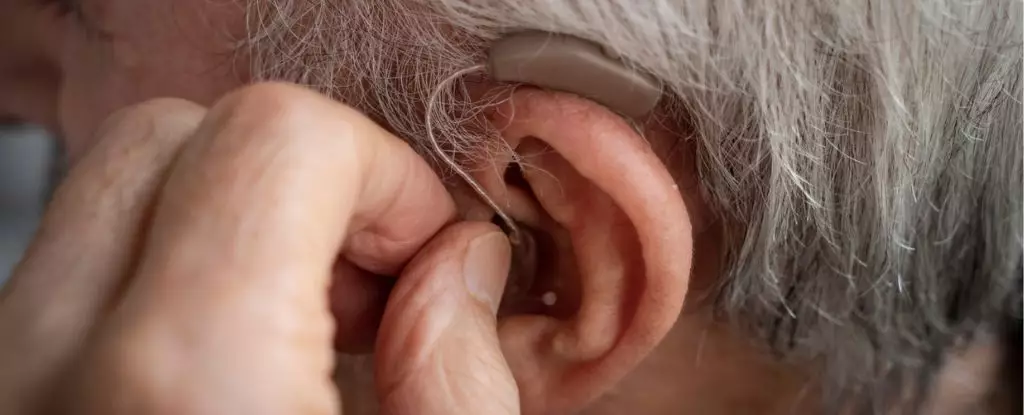Emerging research is shedding light on a surprising connection between hearing loss and Parkinson’s disease, suggesting that addressing auditory impairments may play a crucial role in enhancing neurological health. A study involving over 3.5 million veterans in the United States highlights a notable trend: individuals with hearing loss have an increased likelihood of receiving a Parkinson’s diagnosis. What’s particularly striking is that the timely use of hearing aids appears to mitigate this risk, signaling the importance of auditory health as a potential modifiable factor in neurodegenerative conditions.
The Research Landscape
The findings from this large-scale study led by neurologist Lee Neilsen at Oregon Health and Science University indicate that the severity and duration of hearing loss correlate with the likelihood of developing Parkinson’s disease. The implications of this research are profound: it emphasizes that investments in hearing aid technology could yield significant benefits not only for auditory function but for overall cognitive health as people age. Previous studies have supported this connection, with a systematic review in 2022 revealing that adults with hearing aids experience a 19% lower rate of cognitive decline compared to their counterparts who forgo auditory assistance.
A more recent clinical trial, cited in 2023, underscored this relationship further by demonstrating that hearing aids might decelerate cognitive decline by nearly 50% in certain older populations. This growing body of evidence positions hearing loss as a precursor to cognitive issues, akin to other well-documented early indicators, such as visual problems and olfactory decline. As the largest and most rigorous examination of this phenomenon to date, Neilsen’s study opens the door to new avenues of preventive healthcare.
The underlying mechanisms behind the auditory-neurological connection remain somewhat mysterious. Researchers speculate that hearing aids might restore or reinforce neural pathways, akin to how regular exercise positively impacts muscle health. Conversely, they may alleviate cognitive load by easing the demands placed on the brain when processing auditory information. This reduction in strain could bolster overall brain performance, thereby allowing individuals to engage more deeply in social interaction and mitigate feelings of loneliness—both of which are linked to cognitive decline.
Hearing aids could also play a role in enhancing quality of life through better social engagement. Improved communication often leads to reduced isolation and a more active lifestyle, factors known to contribute positively to mental health. The prospect that hearing aids could serve as a protective factor against cognitive decline underscores the need for timely interventions.
Given these compelling findings, Lee and his team advocate for routine hearing screenings, especially in primary healthcare settings, even when patients don’t voice hearing concerns. The widespread underdiagnosis of hearing loss may hinder opportunities for early intervention, potentially escalating risks for neurodegenerative diseases such as Parkinson’s.
Furthermore, those experiencing hearing impairments alongside other early symptoms of Parkinson’s—sleep disorders, visual impairments, or loss of smell—are at an even greater risk. This intersection of symptoms calls for a more integrated approach to healthcare that emphasizes the holistic nature of sensory function and cognitive health.
As research progresses, the connection between hearing loss and Parkinson’s disease deserves heightened attention. The evidence presented suggests that addressing hearing impairment through the use of hearing aids could be a genuinely effective strategy for reducing Parkinson’s risk. As healthcare systems evolve, there is an imperative to incorporate hearing health assessments into routine care for older adults.
Ultimately, while further randomized clinical trials are needed to explore the nuances of this association, the clear message is that hearing aids are a low-cost, low-risk intervention with the potential to significantly enhance health outcomes. By taking hearing health seriously, we might not only improve the quality of life for millions but also forge a path toward reducing the burden of neurodegenerative diseases like Parkinson’s. Through greater awareness and proactive measures, we have the chance to tackle a pressing issue that intersects age, cognition, and quality of life.


Leave a Reply